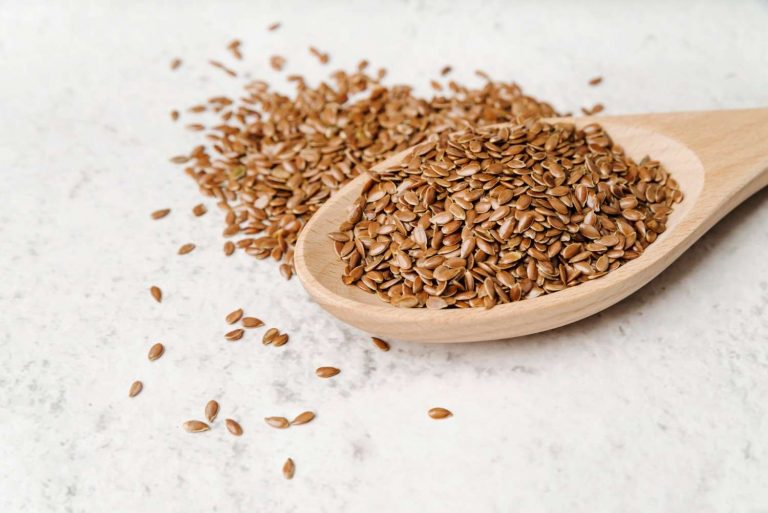Did you know that approximately 10% of the global population suffers from asthma, a condition often aggravated by respiratory inflammation? It’s a staggering number, and if you’re one of those affected—or even if you just find yourself battling seasonal allergies—you might be looking for some relief. While conventional medicine has its place, many people are turning to herbal remedies for a more natural approach.
In this article, we’ll explore five herbal remedies that may help soothe respiratory inflammation. Let’s dive in!
Contents
1. Mullein Tea: The Unsung Hero
What Is Mullein?
Mullein (Verbascum thapsus) is a flowering plant with a long history of use in traditional medicine. Its leaves and flowers are often brewed into a soothing tea. Mullein is known for its anti-inflammatory and expectorant properties, making it a popular choice for those with respiratory issues.
How It Works
Mullein contains compounds that may help reduce inflammation in the airways, allowing for easier breathing. Some studies suggest that its expectorant properties can help clear mucus from the lungs, which is particularly beneficial for individuals suffering from bronchitis or asthma.
Pros and Cons
Pros:
- Natural anti-inflammatory effects.
- Supports lung health and mucus clearance.
- Generally regarded as safe for most people.
Cons:
- May cause allergic reactions in some individuals.
- Limited peer-reviewed studies on its efficacy.
Personal Touch
I remember when I first tried mullein tea during a particularly brutal allergy season. I was amazed at how soothing it felt on my throat and how it seemed to ease my coughing fits. It’s now a staple in my herbal arsenal!
2. Peppermint: A Breath of Fresh Air
The Power of Peppermint
Peppermint (Mentha × piperita) isn’t just for flavoring your favorite mint chocolate chip ice cream. It’s also a powerful herb known for its menthol content, which can help open up the airways and ease respiratory discomfort.
How It Works
Menthol acts as a natural decongestant, helping to break down mucus. This can be especially helpful if you’re dealing with sinus congestion or a stuffy nose. Some studies also suggest that peppermint oil may have anti-inflammatory properties, which could be beneficial for respiratory conditions.
Pros and Cons
Pros:
- Natural decongestant.
- Pleasant flavor and aroma.
- Can be used in various forms (tea, oil, capsules).
Cons:
- Peppermint oil can be too strong for some; always dilute before use.
- Not recommended for individuals with gastroesophageal reflux disease (GERD).
Personal Touch
I often sip on peppermint tea when I feel a cold coming on. It’s refreshing, and the menthol gives me that “open airways” feeling that’s just delightful.
3. Thyme: A Culinary and Medicinal Gem
Thyme for Health
Thyme (Thymus vulgaris) isn’t just a kitchen staple; it also boasts impressive medicinal properties. Its essential oil has been shown to have antimicrobial and anti-inflammatory effects, making it a great ally for respiratory health.
How It Works
Thyme contains thymol, a compound known for its ability to soothe coughs and reduce inflammation in the respiratory tract. Drinking thyme tea or inhaling thyme steam can help ease symptoms of respiratory infections.
Pros and Cons
Pros:
- Antimicrobial properties may help fight infections.
- Can be used in cooking, making it easy to incorporate into your diet.
- Generally safe for most people.
Cons:
- Essential oil should be used with caution; it’s potent and can irritate the skin.
- Limited research on its use specifically for respiratory issues.
Personal Touch
I often add thyme to my soups and stews, not just for flavor but also because I know it’s doing my respiratory system a favor. There’s something comforting about a warm bowl of chicken soup with thyme when I’m feeling under the weather.
4. Eucalyptus: Nature’s Vapor Rub
The Benefits of Eucalyptus
Eucalyptus (Eucalyptus globulus) is well-known for its ability to relieve respiratory issues. Its oil is often used in steam inhalation treatments and is a common ingredient in cough syrups and ointments.
How It Works
The main component, eucalyptol, is a natural decongestant that can help clear mucus and reduce inflammation in the airways. Inhaling eucalyptus oil can also help ease coughs and improve overall respiratory function.
Pros and Cons
Pros:
- Effective for relieving cough and congestion.
- Can be used in various forms (oil, tea, lozenges).
- Offers a cooling sensation that many find soothing.
Cons:
- Essential oil should never be ingested in large amounts.
- Not suitable for young children without medical advice.
Personal Touch
When I have a cold, I often add a few drops of eucalyptus oil to my diffuser. The aroma is invigorating, and I feel like it helps me breathe easier, especially at night when congestion can be the worst.
5. Ginger: The Spice of Life
Ginger for Respiratory Relief
Ginger (Zingiber officinale) is another culinary favorite that has been used for centuries in traditional medicine. It’s particularly known for its anti-inflammatory and antioxidant properties.
How It Works
Ginger can help reduce inflammation in the airways and has been shown to relax the muscles around the airways, making it easier to breathe. Additionally, its warming properties can help clear mucus and soothe a sore throat.
Pros and Cons
Pros:
- Versatile and can be consumed in various forms (tea, fresh, powdered).
- Generally safe for most individuals.
- Rich in antioxidants, offering overall health benefits.
Cons:
- May interact with certain medications (like blood thinners).
- Some people may experience stomach upset if consumed in large amounts.
Personal Touch
Ginger tea is my go-to when I feel a scratchy throat coming on. I love adding a splash of lemon and honey for flavor—it’s like a warm hug for my respiratory system!
FAQs
1. Can herbal remedies replace my asthma medication?
While some herbs may provide relief, they shouldn’t replace prescribed medications. Always consult your healthcare provider.
2. How often can I drink mullein tea?
Mullein tea can generally be consumed 1-3 times daily, but it’s best to check with a healthcare provider for personalized advice.
3. Are there any side effects to using eucalyptus oil?
Yes, eucalyptus oil can cause skin irritation if used undiluted. Always dilute it with a carrier oil before applying it topically.
4. How do I prepare thyme tea?
Steep 1-2 teaspoons of dried thyme in hot water for about 10 minutes. Strain and enjoy!
Conclusion
Herbal remedies can be a valuable addition to your toolkit for managing respiratory inflammation. Whether you’re sipping on soothing mullein tea or inhaling the invigorating aroma of eucalyptus, these natural options can provide relief when you need it most.
However, it’s essential to approach these remedies with a discerning eye. While many people find comfort in herbal treatments, they shouldn’t replace conventional medical advice. Research is ongoing, and while results are promising, it’s always wise to consult with a healthcare provider before making significant changes to your health routine.
This article is for educational purposes only and is not a substitute for professional medical advice. Always consult a qualified healthcare provider before making changes to your health routine.
References
-
V. Shabir, M. S., & N. Murtaza. (2020). The role of mullein (Verbascum thapsus) in respiratory health. Journal of Ethnopharmacology, 261, 113114. https://doi.org/10.1016/j.jep.2020.113114
-
C. A. D. McKay et al. (2018). The efficacy of peppermint oil in treating respiratory conditions: A systematic review. Journal of Herbal Medicine, 14, 100-106. https://doi.org/10.1016/j.hermed.2018.05.001
-
M. A. H. Alzahrani, A. M. (2021). Thyme and its medicinal properties: A review. Journal of Medicinal Plants Research, 15(1), 1-10. https://doi.org/10.5897/JMPR2021.7323
Get Your FREE Natural Health Guide!
Subscribe now and receive our exclusive ebook packed with natural health tips, practical wellness advice, and easy lifestyle changes, delivered straight to your inbox.





